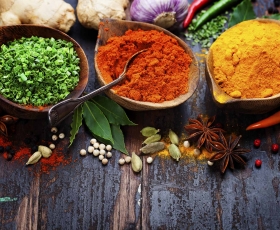In today's diligent consumer landscape, the need for fairly sourced and lasting items has risen. Private label food manufacturers have emerged as trailblazers in this domain name, commonly collaborating with agreement food manufacturers to spearhead sustainability and accountable sourcing efforts. With a tenacious dedication to ecological ethics, private label brands have actually made it their objective to provide sustainable, high-quality alternatives to consumers.
Private Label Food Manufacturers
Over the last few years, private label food manufacturers, additionally referred to as very own brand names or shop brand names, have actually experienced an amazing rise in popularity. These manufacturers create goods offered under the logo private label foods design of a store, grocer, or exclusive entity. What collections private-label items apart is their capability to offer affordable pricing without jeopardizing on quality.

Agreement Food Manufacturers
Numerous private-label food manufacturers join forces with contract manufacturers to develop their product lines. Contract food manufacturers are specialists in generating food for exclusive tags. This tactical partnership enables exclusive label companies to take advantage of the expertise, resources, and specialized food manufacturing facilities of their collaborators.
Sustainability at the Core
Private label food manufacturers utilize different approaches to enhance sustainability within their supply networks:
Moral Sourcing:
Personal label firms are increasingly devoted to sourcing components according to moral and fair trade requirements. This entails making sure that manufacturers as well as workers of basic materials, such as coffee beans, seasonings, or chocolate, get fair compensation for their initiatives.
Local Sourcing:
Focusing on local sourcing of components is an additional trademark of private-label food makers. This not only lowers the carbon impact connected with transportation yet additionally supports regional farmers as well as neighborhoods.
Organic Ingredients:
With the organic food market rising, personal tags are reacting by incorporating natural components into their product. Organic farming techniques focus on soil wellness while shunning synthetic chemicals and fertilizers.
Sustainable Fish and shellfish:
Private Label Food Manufacturers are thorough in making certain that the fish and shellfish they utilize is sustainably harvested, sticking to standards set by organizations like the Marine Stewardship Council, which promotes responsible fishing.
Reduced Food Waste:
Personal label business are actively servicing lowering food waste by applying effective manufacturing procedures and creating products with longer shelf lives. Some brand names are additionally partnering with food rescue companies to contribute surplus food to those in requirement.
Eco-Friendly Packaging and also Initiatives
Sustainability efforts by private-label food suppliers extend past sourcing components to encompass packaging and also eco-friendly campaigns:
Lasting Product packaging:
Exclusive label brands have embraced eco-friendly packaging options, consisting of recyclable, biodegradable, or compostable materials. Redesigning packaging to lessen excess material and decrease environmental influence is a top concern.
Waste Reduction:
To minimize waste, private-label food producers enhance item sizes, reduce excess product packaging, as well as discover innovative product packaging solutions. Some brand names even urge consumers to take part in recycling programs.
Power Efficiency:
Many private label producers are buying even more energy-efficient manufacturing plants, lowering water usage, as well as embracing renewable energy sources to better minimize their environmental footprint.

Carbon Neutral Initiatives:
Some exclusive brand name food producers are taking enthusiastic actions to attain carbon nonpartisanship by offsetting their greenhouse gas discharges through reforestation projects as well as renewable energy credits.
Difficulties and also the Road Ahead
Despite the significant strides made in sustainability and also accountable sourcing, private-label food producers encounter difficulties. Balancing sustainability with cost-effectiveness can be a delicate act, in some cases needing concessions on sustainable ingredients or the exploration of environmentally friendly alternatives.
Nonetheless, the future of private-label food manufacturing holds terrific assurance. As customer understanding and also demand for sustainable products remain to rise, private-label brand names and their contract food manufacturing companions are likely to intensify their efforts. Cooperation with vendors as well as investment in lasting technical advances and openness will be essential fit a lasting future for the sector.
Frequently Asked Concerns
Q1: What are private label food manufacturers?
Private label food manufacturers create products sold under the logo of a retail store, grocer, or exclusive entity. They use competitively priced items without endangering on top quality.
Q2: Exactly how do private label food manufacturers promote sustainability?
Private label food manufacturers advertise sustainability through moral sourcing, local active ingredient purchase, using organic active ingredients, sustainable seafood methods, and also efforts to lower food waste.
Q3: What environment-friendly product packaging choices do exclusive label brands make use of?
Private label brands embrace environment-friendly product packaging options such as recyclable, biodegradable, or compostable materials. They likewise upgrade product packaging to decrease excess product as well as minimize ecological effect.
Q4: What tests do private label food manufacturers deal with in sustainability efforts?
Balancing sustainability with cost-effectiveness is a significant challenge for private label food manufacturers. This might call for concessions on sustainable ingredients or the expedition of eco-friendly alternatives.
Conclusion
Private label food manufacturers go to the forefront of the sustainability and liable sourcing motion within the food market. Their dedication to ethical sourcing, neighborhood procurement, organic active ingredients, and also lasting practices, along with their commitment to eco-friendly product packaging as well as waste reduction campaigns, show their decision to satisfy the needs of today's eco-conscious consumers.
Regardless of the challenges they deal with, private label food manufacturers are poised for an encouraging future. With customers increasingly focusing on sustainability, the market is likely to witness also higher cooperation with vendors, financial investment in lasting innovations, and a dedication to transparency. As we move forward, private label food manufacturers will remain to play a crucial function in shaping an extra sustainable and ethical food landscape for all.